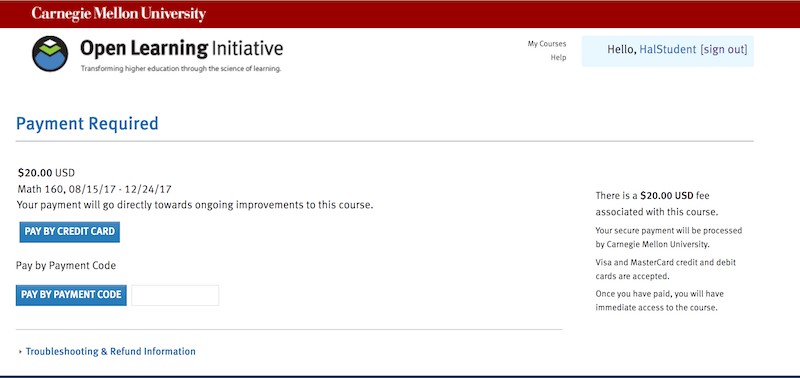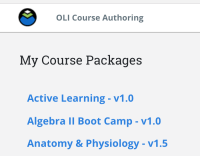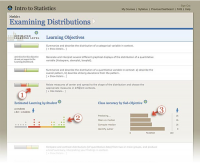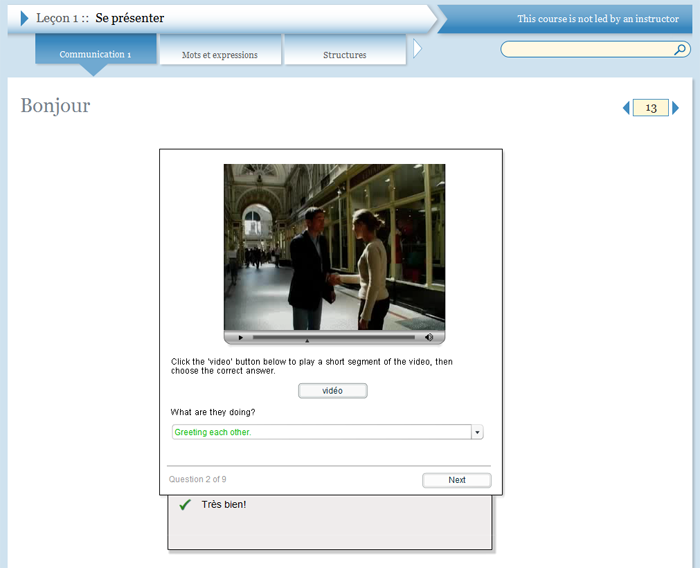An introduction to causal and statistical reasoning, this course is meant for students interested in critical thinking skills for daily life, students who will take a few statistics courses in service of a related field of study, and/or students interested in the foundations of quantitative causal models: called Bayes Networks.
Causal and Statistical Reasoning
$15
- Description
- What students will learn
- Learning objectives by module
- Course assessments, activities, and outline
- Other course details
- System requirements
- Included instructor tools
Description
This course provides an introduction to causal and statistical reasoning. After taking this course, students will be better prepared to make rational decisions about their own lives and about matters of social policy. They will be able to assess critically—even if informally—claims that they encounter during discussions or when considering a news article or report. A variety of materials are presented, including Case Studies where students are given the opportunity to examine a causal claim, and the Causality Lab, a virtual environment to simulate the science of causal discovery. Students have frequent opportunities to check their understanding and practice their skills.
This course is meant to serve students in several situations. One, it is meant for students who will only take one such research methods course, and are interested in gaining basic skills that will help them to think critically about claims they come across in their daily lives, such as through a news article. Two, it is meant for students who will take a few statistics courses in service of a related field of study. Three, it is meant for students interested in the foundations of quantitative causal models: called Bayes Networks.
In-Depth Description
Topics Covered:
Causation, association and independence, causation to association, association to causation: problems, association to causation: strategies
Academic Version
Academic versions of this course are offered by educational institutions that award accreditation, and use the Causal and Statistical Reasoning OLI course as a textbook replacement or supplement. Students taking an Academic Course have access to the same course materials as the students taking the Open & Free Course PLUS access to graded exams, and instructors have access to a tools and features that are unavailable when using the Open & Free version. The Academic Courses track students’ learning of key concepts and give the student and the instructor informative feedback to improve learning outcomes.
What students will learn
Students who take this course will:
- Be better prepared to make rational decisions about their own lives and about matters of social policy.
- Be able to critically assess claims that they encounter during discussions or when considering a news article or report.
Topics covered consist of:
- Causation.
- Association and independence.
- Causation to association.
- Association to causation: problems and strategies.
Learning objectives by module
Coming soon.
Course assessments, activities, and outline
UNIT 1: Causation
Module 1: Causation: Preliminaries
Causation: Preliminaries Quiz
Module 2: Causation Among Variables
Variable Causation Quiz
Module 3: Indeterministic Causation
Indeterminism Quiz
Module 4: Causal Graphs
Causal Graphs Quiz
Module 5: Interventions
Interventions Quiz
UNIT 2: Association and Independence
Module 6: Relative Frequency
Relative Frequency Quiz
Module 7: Conditional Relative Frequency
Conditional Relative Frequency Quiz
Module 8: Independence and Association
Independence Quiz
Module 9: Conditional Independence
Conditional Independence Quiz
UNIT 3: Causation to Association
Module 10: Causation vs. Association
Causation vs. Association Quiz
Module 11: Causation to Unconditional Association
Causation to Association Quiz
Module 12: Causation to Conditional Association
Causation to Conditional Association Quiz
Module 13: D-separation
D-Separation Quiz
UNIT 4: Association to Causation: Problems
Module 14: Problems with Causal Discovery
Problems with Causal Discovery: Quiz
Module 15: Confounding (Qualitatively)
Confounding Quiz
UNIT 5: Association to Causation: Strategies
Module 16: Experiments
Experiments Quiz
UNIT 6: Appendix
Module 17: Case Study Repository
Module 18: Causality Lab Tutorials
Module 19: Set Builder Manual
Module 20: Glossary
Other course details
System requirements
OLI system requirements, regardless of course:
- internet access
- an operating system that supports the latest browser update
- the latest browser update (Chrome recommended; Firefox, Safari supported; Edge and Internet Explorer are supported but not recommended)
- pop-ups enabled
- cookies enabled
Some courses include exercises with exceptions to these requirements, such as technology that cannot be used on mobile devices.
This course’s system requirements:
- none listed (subject to change)
Included instructor tools
Instructors who teach with OLI courses benefit from a suite of free tools, technologies, and pedagogical approaches. Together they equip teachers with insights into real-time student learning states; they provide more effective instruction in less time; and they’ve been proven to boost student success.










